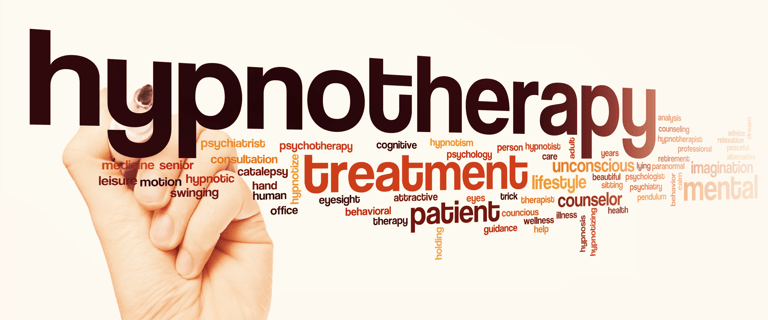Our Sessions - a Collaboration


Our therapy sessions are one-on-one, ensuring personalised attention and care.
I subscribe to the principle that everyone ultimately has all the resources they need to make the necessary changes to their lives, right now.
As a therapist, I guide you to tap into these resources for solutions best suited to your needs. My approach requires flexibility, competence, and a wide range of techniques. From you, it requires motivation, commitment, and a desire to change.
My clinical experience suggests that therapeutic success depends greatly on the level of the client’s participation.
I aim to create a supportive environment for an effective therapy experience. After the retreat, I offer online support to help integrate your positive changes.


All sessions are 100% safe and fully confidential. We also offer specialised sessions for couples and families.
Hypnotherapy
Hypnotherapy is a powerful form of therapy that utilises hypnosis as a tool to facilitate positive changes in an individual's thoughts, feelings, behaviours, and overall well-being.
Studies have shown positive outcomes for a whole range of conditions, such as anxiety disorders, stress, depression, burnout, phobias, pain management, weight loss, smoking cessation and improving sleep.
Hypnotherapy is effective because it helps individuals to tap into their unconscious mind, access internal resources and make positive changes. It can help uncover underlying beliefs, emotions, or traumas that may be contributing to the problem and facilitate healing or resolution.
For a full list of frequently asked questions about hypnotherapy and hypnosis please check here:


Royal Society of Medicine
The British Psychological Society
American Medical Association
American Dental Association
The United States’ National Institute of Health
Mayo Clinic
Harvard University Medical School
Yale University Medical School
Hypnotherapy has been widely researched and endorsed by medical authorities and associations who have long recognized the validity of hypnotic phenomena and the effectiveness of hypnosis as a therapeutic intervention.
Amongst them are:
If you have any other questions that are not answered in the FAQ, please do not hesitate to contact me.
Therapy in Nature
Therapy in nature is an approach to mental health treatment that takes advantage of the healing properties of the natural environment. Below are some of the benefits associated with doing therapy in nature:
Stress reduction
Spending time in nature has a calming effect on our minds and bodies. The sights, sounds, and scents of nature can help reduce stress and facilitate relaxation, making therapy sessions more effective. Being surrounded by greenery, fresh air, and natural beauty can have a soothing effect on the mind and body, leading to decreased anxiety and an enhanced sense of wellbeing.


Enhanced mental clarity & focus
Being in nature allows us to unplug from the demands of daily life and experience a sense of tranquillity. This can lead to improved mental clarity, concentration, and cognitive function.


Physical well-being
Engaging in physical activity, such as walking, cycling, or gentle exercise can have positive effects on health, including improved cardiovascular fitness, increased energy levels, and better sleep. This can make therapy more effective.


Improved mood
Nature has a positive impact on mood and emotional well-being. Research suggests that exposure to natural environments can boost positive emotions, increase happiness, and reduce symptoms of depression.


Exposure to sunlight
Spending time outdoors exposes individuals to natural light, which can positively impact sleep patterns and regulate circadian rhythms. Adequate exposure to natural light is crucial for maintaining healthy sleep-wake cycles. Sunbathing is the most natural and efficient way to obtain vitamin D which plays a crucial role in maintaining overall health. Vitamin D is involved in supporting the immune system, reducing inflammation, and improving mental health. Some studies suggest a direct relationship between low vitamin D levels and mood disorders like depression and seasonal affective disorder (SAD).


Connection & grounding
Nature provides a sense of connection and grounding. It allows people to reconnect with themselves, others, and the natural world. This connection can foster a sense of meaning, purpose, and interconnectedness, which can be particularly beneficial for those feeling disconnected, isolated, or overwhelmed by urban or indoor environments. Nature can help foster a sense of belonging.


Increased mindfulness
Nature can help enhance our ability to be present in the moment and cultivate mindfulness. Therapeutic activities like walking, hiking, swimming, or simply sitting in a natural environment can facilitate a deeper connection with oneself and the surroundings.


Enhanced self-reflection
Nature provides a peaceful and reflective setting that encourages introspection, self-exploration, and personal growth. Being in nature often encourages us to slow down. Nature can create a safe space for individuals to delve into their thoughts and tune into their real emotions, fostering deeper insights and self-awareness.


Symbolic meaning
Natural elements such as the sea, the sky, trees or mountains can hold symbolic meaning for individuals, allowing them to explore their experiences and emotions in a metaphorical way. Nature's beauty and symbolism can facilitate the therapeutic process and aid in personal growth.


Novel & refreshing experience
Taking therapy outdoors provides a change of scenery from traditional office settings. The novelty and freshness of being in nature can make therapy sessions more engaging, inspiring creativity, and bringing a sense of adventure to the therapeutic process.


Studies & Research
There is a growing body of research that supports the idea that nature can have positive effects on healing. Here are a few examples of studies that highlight the benefits of nature in the healing process:
Nature &
Stress Reduction
Numerous studies have shown that spending time in nature can reduce stress levels. For instance, a study published in the Journal of Environmental Psychology found that individuals who walked in a natural environment had lower levels of cortisol (a stress hormone) compared to those who walked in an urban setting.
Nature &
Mental Health
Research has shown that exposure to nature can have a positive impact on mental health. A study published in the Proceedings of the National Academy of Sciences found that individuals who walked for 90 minutes in a natural setting showed reduced activity in the brain region associated with rumination (repetitive negative thinking), compared to those who walked in an urban environment.
Nature &
Physical Healing
Studies have indicated that access to nature can promote physical healing. For example, a study published in the Journal Environment and Behaviour found that hospital patients with a view of trees and nature recovered more quickly, required fewer pain medications, and had fewer complications compared to patients with a view of a brick wall.
Nature &
Attention Restoration
Nature has been found to enhance cognitive function and restore attention. Research published in the Journal of Environmental Psychology suggests that spending time in nature can improve focus, attention, and working memory, potentially aiding in the healing process by enhancing mental clarity and concentration.
Nature &
Well-being
Numerous studies have demonstrated the positive effects of nature on overall well-being. For instance, a study published in the International Journal of Environmental Health Research found that individuals who engaged in outdoor activities experienced increased feelings of vitality, reduced fatigue, and improved overall well-being.
These are just a few examples of the studies highlighting the healing benefits of nature. It's worth noting that research in this field is ongoing, and further studies are being conducted to explore the relationship between nature and healing in greater detail.
